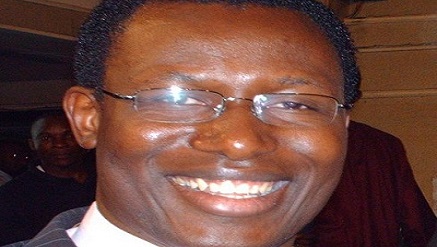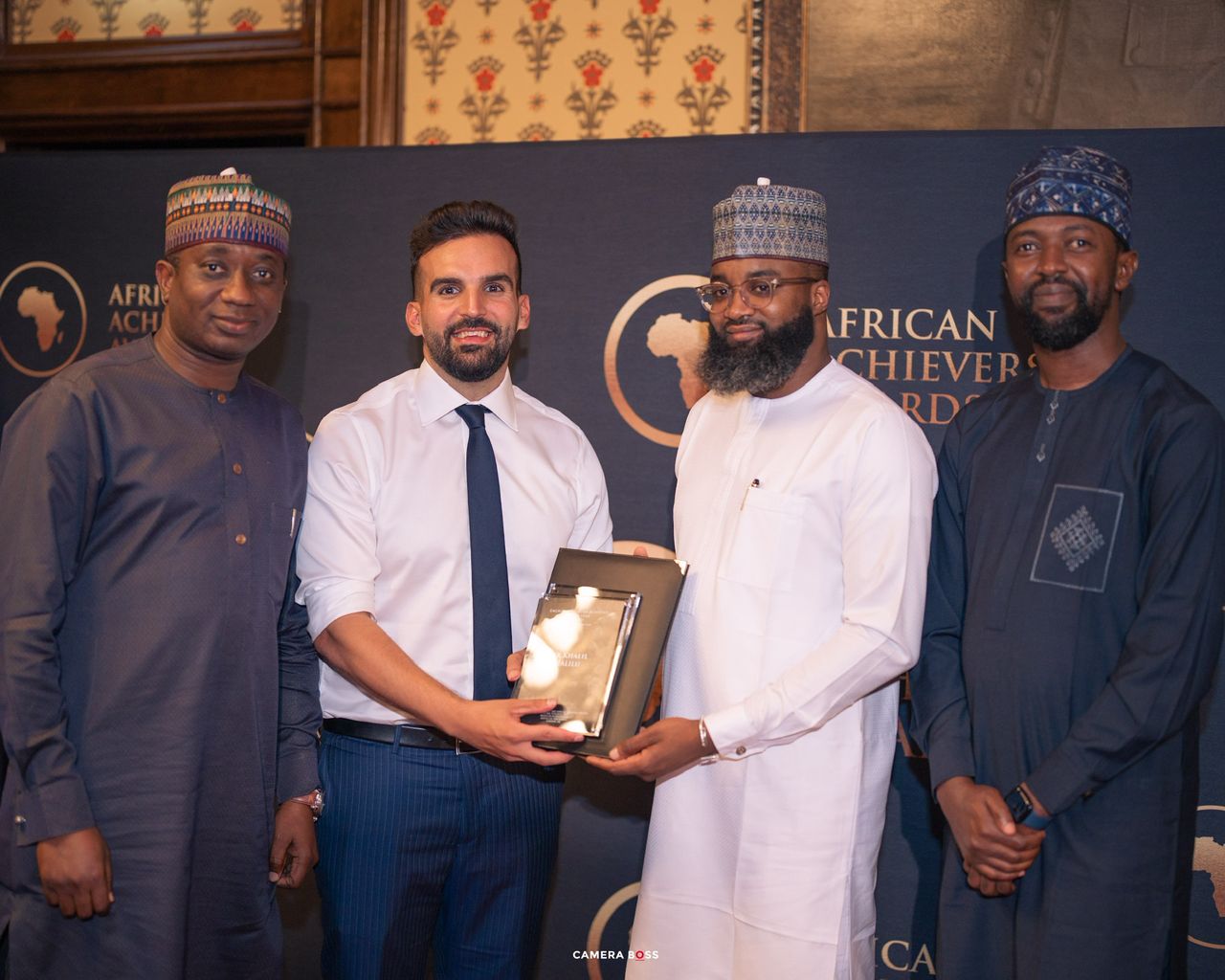Telecom
Operators Use 1.4m Litres of Diesel Daily to Power BTS

Telecommunications towers in the country consume about 1.4 million litres of diesel to power base transceiver stations (BTS) that make it possible for Nigerians to use GSM to make and receive calls in a day.
Telecom towers house base stations that Global System for Mobile communications (GSM), Code Division Multiple Access (CDMA) and 4G internet service providers use to deliver services to their customers.
Nigeria CommunicationsWeek investigations revealed that a co-located tower which houses 3 to 5 base stations use 27KVA generator to supply power while a tower that houses a single base station uses 15KVA generator.
More so, a 27KVA generator consumes 3 litres of diesel per hour depending on the age of such generator.
Nigeria CommunicationsWeek gathered that presently, towers run on generator in an average of 20 hours a day.
This means that 20,000 of co-located towers in the country that uses 27KVA generator consumes some 1.2million litres of diesel a day, while towers that house single base station which are 5,000 consume 200,000 litres of diesel a day bringing the total consumption of generators deployed in towers around the country to 1.4m litres per day.
It was learnt that this quantity of diesel consume by generators at different towers cost tower operators about N196million at diesel pump price of N140 per litre.
Lanre Ajayi, president, Association of Telecommunications Companies of Nigeria (ATCON), identified service cost in the management of power supply as responsible for high cost of managing towers in the country.
According to him, ‘the high cost of tower management is occasioned by service cost provided at the towers such as power and security.
“Most towers are powered by generators and the cost of gas is high, they provide security at the towers. These are outside the control of co-location operators,” he said.
Gbenga Adebayo, chairman, Association of Licensed Telecommunications Operators of Nigeria (ALTON), said: “In Nigeria, power is a challenge for tower operators, as cost of diesel is high; today you buy N140 per litre tomorrow you buy it for N150. These costs are not insignificant and affect the business”
He added that the present system of handing over towers to tower operators will create more jobs as it encourages springing up of supportive players in the industry.
“This is also fallout of our internal regulatory mechanism to ensure growth in the industry. More so, tower sale could be as a result of administrative reasons, cost reduction or shareholders decision,” he said.
Telecom
Airtel Africa Grew Customer Base to 169m as Q1 Revenue Hits $1.4 Billion

Airtel Africa has grown its customer base by 9.0% to 169.4 million, with data customers increasing 17.4% to 75.6 million with focus on bridging the digital divide across her markets continues. According to the telecommunications operator’s financial results for the quarter ended June 30, 2025, which demonstrated strong growth across key metrics and a continued focus on expanding its services across its 14 African markets.

The operator reported a significant increase in revenue, reaching $1,415 million. This represents a 24.9% growth in constant currency and a 22.4% increase in reported currency, indicating a more stable macroeconomic environment in its operating regions and effective tariff adjustments, particularly in Nigeria.
The growth was broadly driven, with mobile services revenue increasing by 23.8% in constant currency. Data revenue showed exceptional performance, surging by 38.1%, while voice revenue grew by 13.9%. Mobile money services continued their strong upward trajectory, recording a 30.3% growth in constant currency. This was supported by accelerated growth in Francophone Africa (16.4% in constant currency) and continued strong performance in East Africa (20.3% in constant currency).
Airtel Africa’s profitability also saw a substantial uplift. EBITDA grew by 29.8% in reported currency to $679 million, with EBITDA margins expanding to 48.0% from 45.3% in the prior period. This margin expansion is attributed to sustained operating momentum, more stable fuel prices, and the ongoing benefits from cost efficiency programs.
Profit after tax saw a remarkable improvement, rising to $156 million compared to $31 million in the prior period. Basic Earnings Per Share (EPS) stood at 3.4 cents, a significant increase from 0.2 cents in the previous year, primarily reflecting higher operating profit in the current period and the absence of large derivative and foreign exchange losses that impacted the prior period.
Operational highlights further underscored the company’s growth. Airtel Africa’s total customer base expanded by 9.0% to 169.4 million. Data customers increased by 17.4% to 75.6 million, as the company intensified its efforts to bridge the digital divide. Mobile money customer base also grew by 16.1% to 45.8 million, with transaction value increasing by 28.7% in constant currency.
The company’s strategic focus on enhancing customer experience is supported by ongoing network investments. Over 2,300 new sites were rolled out, bringing the total to 37,579 sites, and the fiber network was expanded by 2,700 km, now exceeding 79,600 km. This investment has boosted data capacity across the region, with 4G population coverage reaching 74.7%, an increase of 3.4% year-on-year.
Airtel Africa continued its debt localization program, with almost 95% of its operating company debt (excluding lease liabilities) now in local currency, up from 86% a year ago, reducing foreign currency debt exposure. The company also confirmed it has returned $16.9 million to shareholders through its ongoing share buyback program as of June 30, 2025.
Sunil Taldar, chief executive officer, said: “We are very pleased with the strong growth in our operating and financial performance in the first quarter. The strength of this performance, and the scale of the growth we achieved, reflects the sustained demand for our services and the strength of our business model to meet these demands. Operationally, the acceleration in customer base growth to 9%, and 17.4% growth in our data customers to 75.6m reflects the strong on-ground execution with a relentless focus on digitisation and the simplification of the customer experience.”
Telecom
Khalil Halilu Honoured at UK Parliament for Championing African Innovation

Mr. Khalil Suleiman Halilu, executive vice chairman/ceo of the National Agency for Science and Engineering Infrastructure (NASENI), was honoured with the prestigious African Achievers Award at the 15th edition of the ceremony held at the historic House of Lords, UK Parliament, on July 11, 2025.

L-R: Founder, Startup Arewa, Mohammed Jega; Deputy Mayor of London for Environment and Energy Mete Coban; Executive Vice Chairman/CEO, National Agency for Science and Engineering Infrastructure (NASENI), Khalil Suleiman Halilu; and Special Adviser to the EVC on Commercialization, Engr. Anas Balarabe during the presentation of the prestigious African Achievers Award to Halilu at the House of Lords, UK Parliament recently.
The award, presented during an event that brought together royals, global leaders, policymakers, and innovators, recognized Mr. Halilu’s outstanding contributions to advancing Africa’s technological infrastructure, innovation ecosystems, and industrial growth through his leadership at NASENI.
Hosted by Baroness Sandip Verma, Chancellor of the University of Roehampton and a respected member of the House of Lords, the ceremony was a powerful global showcase of African excellence and transformative leadership. Mr. Halilu joined a distinguished group of honourees including public officials, business executives, and philanthropists shaping the future of the continent.
In his remarks, Mr. Halilu emphasized Africa’s readiness to lead in innovation, manufacturing, and sustainability.
“It is a great honour to receive this award alongside fellow visionaries committed to Africa’s future. At NASENI, we are bridging the gap between ambition and access, turning ideas into industries, empowering indigenous solutions, and driving forward Nigeria’s and Africa’s industrial transformation. Africa is not just rising, it is ready.”
Under his leadership, NASENI has been repositioned as Nigeria’s leading technology transfer agency, delivering on the Renewed Hope Agenda of President Bola Ahmed Tinubu by enabling local production in critical sectors such as clean energy, agriculture, transportation, and digital infrastructure.
Through strategic partnerships and an Accelerated Technology Transfer & Adaptation Strategy, NASENI is turning Nigeria into a hub for sustainable innovation and industrial self-reliance. Mr. Halilu extended appreciation to the organizers and supporters of the Awards:
“I thank the African Achievers Awards team, Baroness Sandip Verma, and all those across the continent and diaspora who continue to champion African solutions. This recognition is a motivation to do more and a reminder that the future we seek is one we must build ourselves.”
Now in its 15th year, the African Achievers Awards has become one of the most respected platforms spotlighting African leadership and excellence globally. This year’s edition included powerful messages from dignitaries such as King Misuzulu kaZwelithini, Queen Olori Atuwatse III, and Dr. Fatou Bensouda, reinforcing the urgency of building a united and future-facing African continent.
The award to Mr. Khalil Halilu reflects NASENI’s growing continental footprint and its mission to deliver homegrown technologies that respond to Africa’s real challenges, promote sustainable development, and accelerate industrialization across borders.
Telecom
NITRA-ALTON CNII & Sustainability Conference Rescheduled for August 7 in Lagos

The 2025 edition of the Critical National Information Infrastructure (CNII) & Sustainability Conference has been rescheduled to hold on August 7, 2025, at CitiHeight Hotel, Ikeja, Lagos, following a shift from its earlier date of July 30.

The adjustment was made to accommodate a nationwide telecom stakeholders’ meeting convened by the Nigerian Communications Commission (NCC).
The CNII Conference, jointly organised by the Nigeria Information Technology Reporters Association (NITRA) and Association of Licensed Telecommunications Operators of Nigeria (ALTON), seeks to address the implementation and awareness gaps surrounding the CNII Order, signed into law by the Federal Government in August 2024.
The law designates telecom infrastructure as Critical National Information Infrastructure, positioning it as a strategic asset vital to Nigeria’s economic and security framework. Industry groups including the Association of Telecommunications Companies of Nigeria (ATCON) have thrown their weight behind the initiative.
Speaking on the new date, NITRA Chairman, Mr. Chike Onwuegbuchi, emphasised that the Act, though laudable, requires industry-wide collaboration and clear implementation strategy for tangible impact.
“The mere proclamation of CNII as an Act does not guarantee infrastructure safety. Stakeholders must address operational and standardisation gaps to make the law work,” he said.
ALTON Chairman, Engr. Gbenga Adebayo, also highlighted the need for regular maintenance and technology upgrades to curb vandalism and ensure infrastructure security.
Focus Areas of the Conference Include:
- Implementation mechanisms for the CNII Act.
- Stakeholders’ roles at federal, state, and industry levels.
- Security enforcement and public education.
- Infrastructure protection and sustainability.
- Collaboration and compliance across telecom companies.
Expected attendees include the Minister of Communications, Innovation and Digital Economy, regulators, service providers, security agencies, and key players in public and private sectors.
The event is themed “Industry Sustainability And CNII Conference 2025 – Way Forward”, with panel discussions aimed at creating a unified approach to safeguarding Nigeria’s telecom infrastructure under the CNII provisions.

 E-Financial2 days ago
E-Financial2 days agoKuda Unveils New Wallet for Multiple Currencies

 Telecom2 days ago
Telecom2 days agoTelcos Resume SIM Card Sales after 2-Week Halt

 Telecom2 days ago
Telecom2 days agoNigeria, Others Achieve 84% Adult Mobile Phones Penetration

 E-Business2 days ago
E-Business2 days agoHow AI Alert by Airtel is Transforming Mobile Security in Africa

 E-Business2 days ago
E-Business2 days agoNITDA, API Partner Against Harmful Online Content

 Telecom1 day ago
Telecom1 day agoTelcos: How and Why Network Services have Been Poor

 Telecom1 day ago
Telecom1 day agoGlo Launches Nigeria’s First-of-its-kind Device Protection Plan

 News2 days ago
News2 days agoHorn of Africa Leaders Seek Enhanced Digital Integration for Increased Regional Growth























